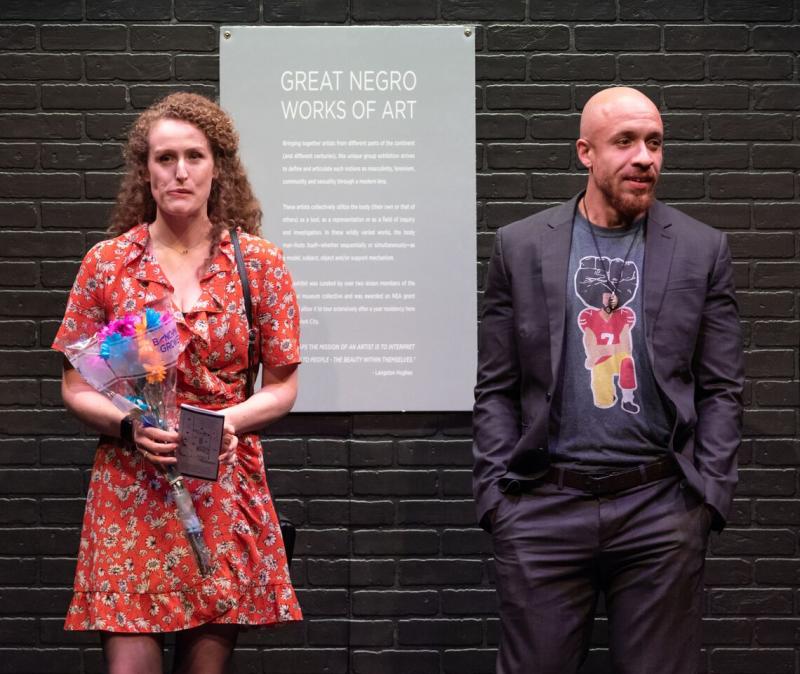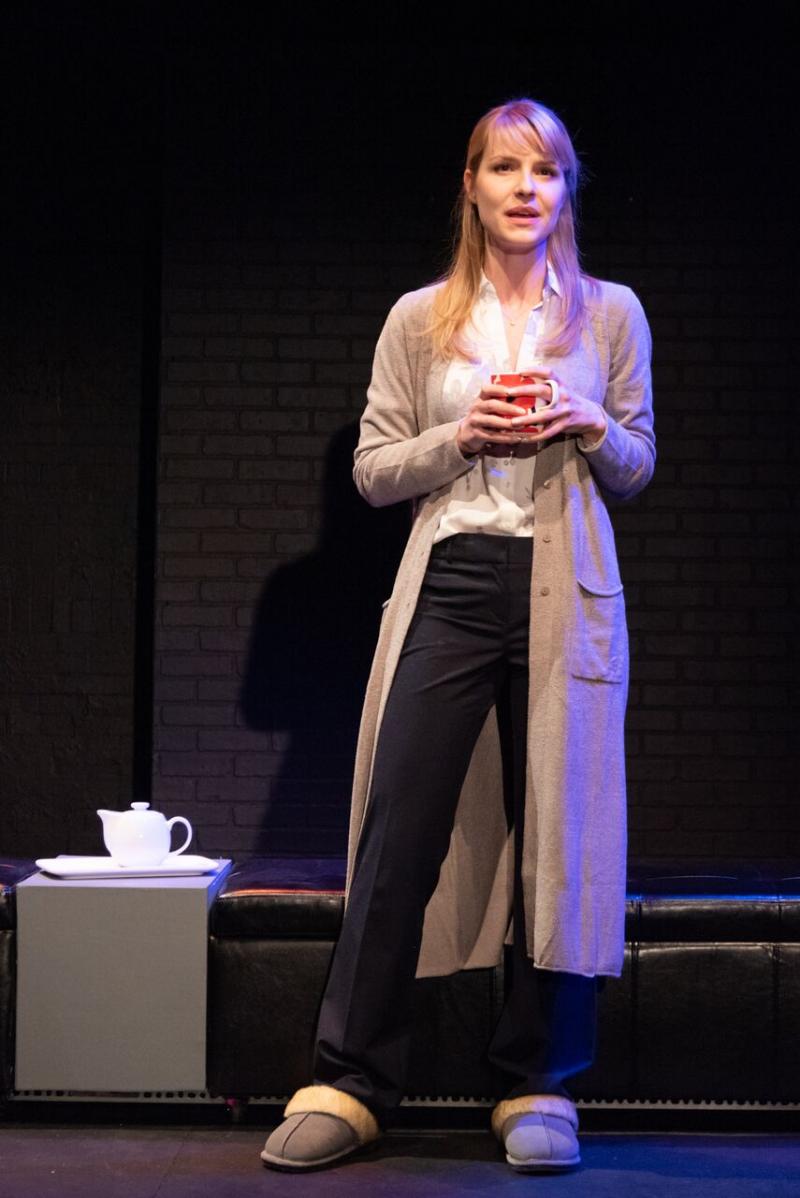Review: Truth Is A Point of View in Three One-Acts at LABUTE NEW THEATER FESTIVAL
During the first year of his presidency, after violence broke out in Charlottesville, Virginia during a protest involving white supremacists, many of whom were displaying Nazi symbols and slogans, Donald Trump infamously noted that there were "very fine people" on both sides of the conflict.

(Photo: Russ Rowland)
One could imagine the president regarding the character created by Neil LaBute for his solo one-act "The Fourth Reich" to be one of those very fine people. The chilling piece that warns of the danger of misplaced empathy opens the program of three short LaBute plays presented at the Davenport as this year's edition of St. Louis Actors' Studio's annual LaBute New Theater Festival.
"Let be clear about one thing," says Karl (Eric Dean White) at the outset. "Hitler lost."
And as the old saying goes, it's the winners who get to write history, making Adolph Hitler, in Karl's words, "one of the most maligned people in the history of the world."
In his view, the 20th Century's most infamous racist murderer was a talented, but flawed, leader who would have been regarded much more favorably by history if he didn't make those tactical mistakes against the Russians and if the German people, who he had given so much to, hadn't given up on him when things were tough.
But if you disregard the content of the speaker's words and focus on his presentation, the friendly, soft-spoken, humorous fellow could be taken, on the surface, for a very fine person.
Under John Pierson's direction, White's portrayal is quite warm and thoughtful, even flashing a bit of stand-up comedy showmanship on occasion. It's an impressive feat when you consider the hostility he no-doubt faces at every performance as he talks directly to the audience. But it's not a gathering of New York playgoers Karl is trying to convince that what we know about the Holocaust has, in fact, been blown out of proportion, especially when compared with other perpetuators of genocide such as, he points out, Ulysses S. Grant.
No, it's more likely someone more impressionable he's speaking to when he points out how being an American means you have the right to discover the facts for yourself and think "free and rational thoughts." Someone who might have felt a bit of a bond while viewing the bucolic landscape Karl displays; a watercolor painted by a young artist who "was filled with hope and dreams and desire. Desire for a new & better day... for you and me."

(Photo: Russ Rowland)
"Great Negro Works of Art," also directed by Pierson, is both the title of the program's second piece and of the museum exhibition its two social media dating app users are attending on their first meetup.
The locale was chosen by Jerri (Brenda Meaney), who is white, because she thought her date Tom (KeiLyn Durrel Jones), who is black, would like it. Their typically awkward first date small talk takes on a new edge when Tom blurts out a joke about Mexicans.
Though his attitude is immediately apologetic, it's not because he feels that there's anything wrong with the joke, but that he doesn't know who might take offense.
"People are so sensitive these days, about everything, every little word we say," Tom complains. "Every phrase is so loaded, it's become perilous, just trying to have a conversation today."
Jerri agrees, but points out, "It's important to say what you mean and to realize that there are some things that are probably off-limits, or at least off-limits to various groups of people."
They spend the rest of their date proving whether or not they practice what they preach. The various conversation triggers include, naturally, the very title of the exhibition they're attending and the first display they see; a collection of lawn jockeys made from melted rap albums.
Tom's persistent questioning reaction to the way Jerri words her conversation puts her on edge and Jerri's claims of interest in black culture ring false when she botches up the identities of the authors of literary works she supposedly likes.
But despite their friction, Tom and Jerri keep trying to keep the date going. They want it to work between them. They just have no idea how to communicate with each other.
The program's third entry, "Unlikely Japan," is directed by LaBute and is decidedly more low-key than its predecessors.

(Photo: Russ Rowland)
An unnamed woman, played by Gia Crovatin, hasn't been able to settle her feelings about finding out a high school boyfriend from ten years ago was a victim of the 2017 Las Vegas mass shooting.
"I feel bad, but that's different than sad... and that's what I'm sad about... that I'm not sad. That he and I have drifted so far apart from where we once were that I'm not sad that he's dead; I just feel bad."
She tells a brief history of their relationship and how during most of the time she was dating the perfectly nice Tim he was unaware she was also seeing older, cooler Doug.
Events involving a trip to Japan lead to their breakup, after which they had no further contact.
While focused on her own feelings, and how her life would have been different if she made a different choice, the woman's thoughts about gun violence reflect an attitude many hold today about the normalcy of such actions stifling emotions.
"People are getting shot and killed every single day and I don't even notice anymore."
"The truth will set you free," says Karl in "The Fourth Reich." The biblical quote is also referenced by the characters in "Great Negro Works of Art" and "Unlikely Japan." What connects the three pieces is how they all deal with the subjectivity of what we regard to be the truth, stemming from individual points of view. Facts may be indisputable, but truth is up for grabs.
Add Your Comment
Videos
